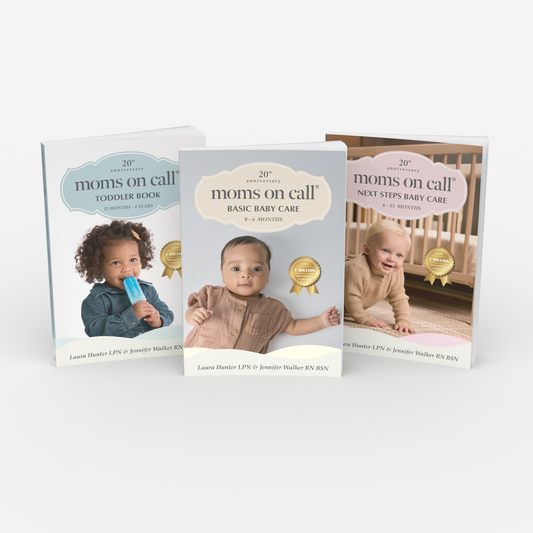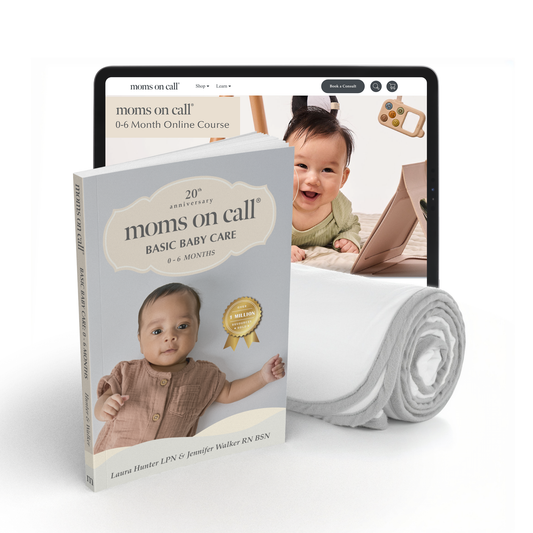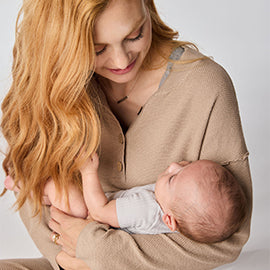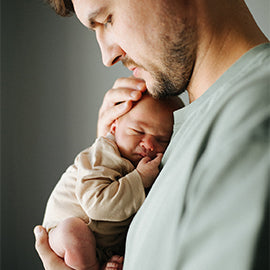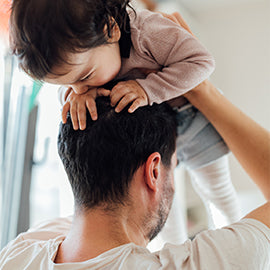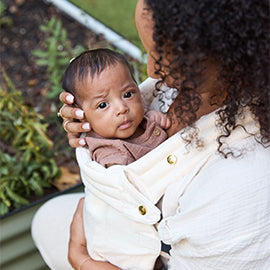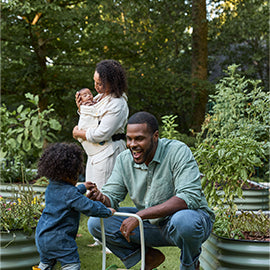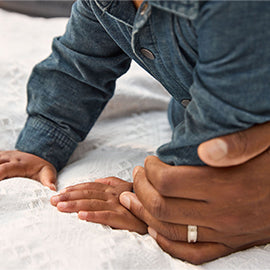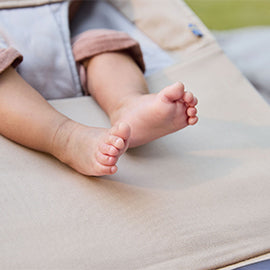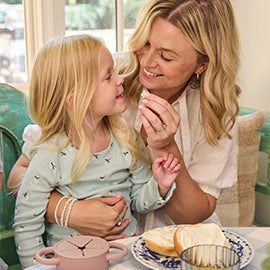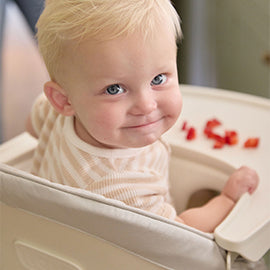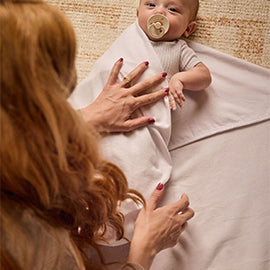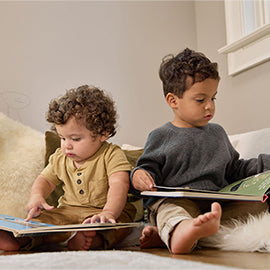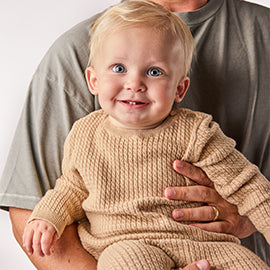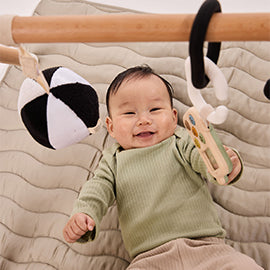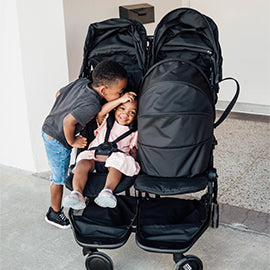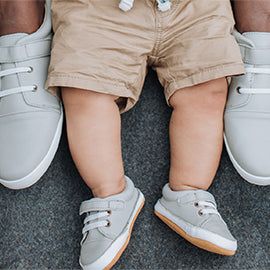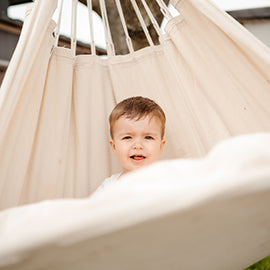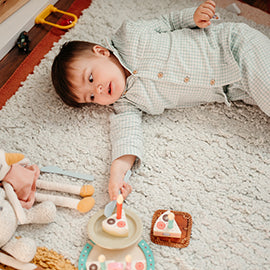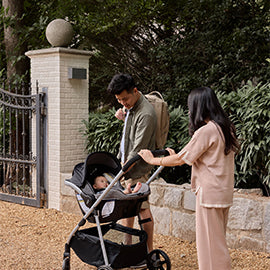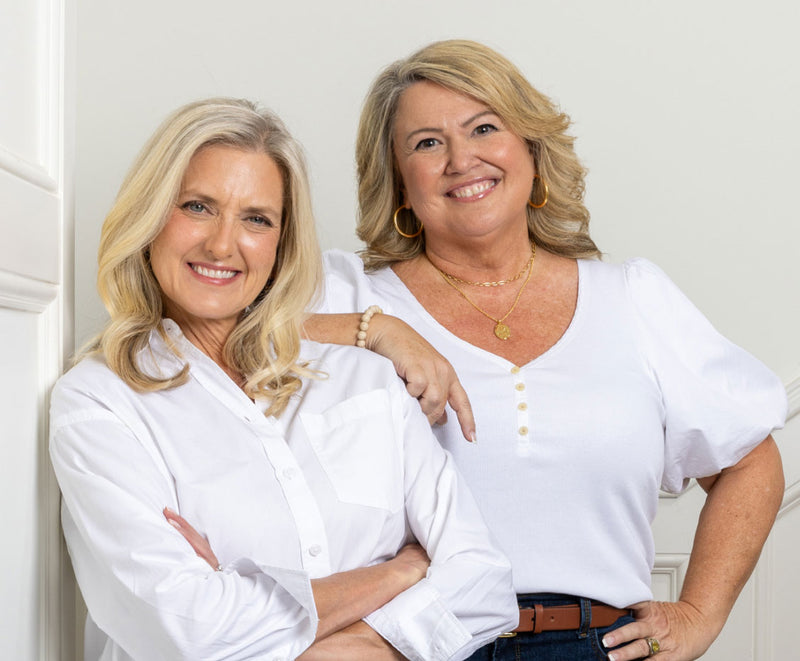Written by McKenzie Hoffman MA, CCC-SLP
The idea of cooking with kids can be a scary thing to imagine. Kids love to make messes! They love to dump, explore, and put everything in their mouth. What could possibly go wrong?! Although it may be scary, kids can get so much out of being in the kitchen! Cooking is a life skill that everyone should have experience with and know how to do. Cooking can teach independence and help children learn in so many ways. As a pediatric speech and language pathologist and feeding specialist, cooking with kids is one of my favorite activities to engage them and target a variety of skills.
Basic Concepts
Cooking with kids is a great way to work on their skills like following directions, colors, counting, and shapes. It is also a great way to teach science and math skills. Have the child read the recipe, make hypotheses on what will happen once a food is cooked, or add new flavors to experiment with tastes.
Joint attention
It is important for kids to work on increasing attention to tasks. Cooking can teach patience, engagement, and listening. Joint attention is a great skill for a child going into a preschool, school environment, or anywhere kids will be learning with peers and/or adults.
Language development
Children of all ages should always be working on speech and language development. Communication reduces frustrations and allows the child to more effectively communicate. Label ingredients and products you are using. Narrate what you are doing and how you are doing it. Find some fun things to cook with kids, share memories and facts about the foods. Compare and contrast objects. Ask your child questions. Use prepositions and directives when locating ingredients and supplies. There are always new things happening when you are in the kitchen, so use language to help your child make sense of the new experiences.
Motor Skill Development
Using utensils and helping in the kitchen is a great way to work on motor skills! Target hand-eye coordination through pouring and measuring, work on bilateral coordination by using a rolling pin or crossing midline to reach for ingredients, use cookie cutters to strengthen hands. Stirring, cutting, scooping, and measuring are all great ways to build strength and coordination. These are all also great ways to work on proprioception.
Sensory Play
Making a mess is part of the learning experience. Let your little one put hands in the flour before or after scooping, squish the dough, feel the batter, etc. Every touch helps develop your child’s sensory system. Pair the touch with language to teach that the food is wet, dry, sticky, bumpy, etc. Link the texture to other foods that feel similar ways. Child doesn’t like touching the food? Start by touching with one finger or by using a measuring cup or utensil. Model touching the texture yourself, so it doesn’t feel as scary or new. Offer a towel or wet rag to wash hands so the child can have some control over the mess. Cooking with kids is FUN! Building positive memories with foods can have such a positive impact on the way kids experience foods and mealtimes. Children are less likely to be picky and more likely to be engaged and interested in meals when they spend time in the kitchen, cooking and exploring. Have a picky eater? Use cooking more as an educational and play-based experience, and less like an opportunity to “get” your child to eat. A picky eater usually needs more time to learn and explore and more positive experiences and sensory play. You don't need to follow strict recipes to cook with kids. Give them time and focus on making cooking fun and letting the child lead.
McKenzie is a speech pathologist who has always had a passion for feeding. Her role as a feeding therapist is providing NICU follow-up services for babies and their family at her local children’s hospital. She follows babies from the time they leave the NICU until they are eating like their peers. She does a lot of work helping with transitioning off NG and g-tubes as well as starting solids. She also works with children of all ages and abilities, helping them add foods to their diet, build oral motor skills, and anything that will help them eat more like their peers.
McKenzie's main goal with Playing at Your Plate is to help children of all ages learn to love to eat. The secret to being a good eater is loving what you do and she finds that the earlier this can start, the better! Having children of her own gives McKenzie the perspective she needs to know and understand that feeding kids is not easy. She has had the opportunity to problem solve with so many children, both at home and in my career and she would love to share her knowledge with you!

